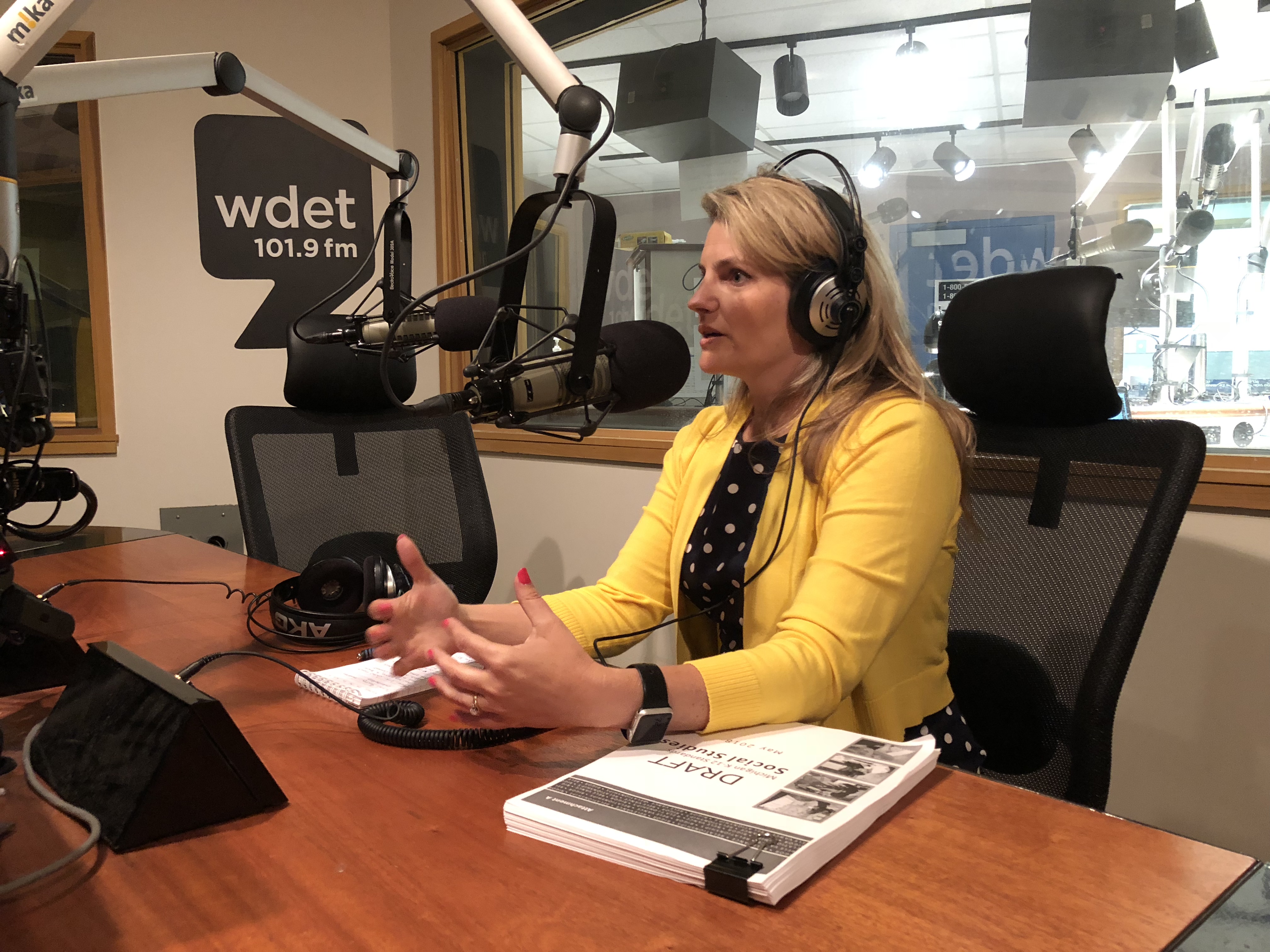Should Social Studies Standards Reference NAACP or Roe v Wade? Some Republicans Say No
See the revisions conservatives have made to proposed social studies standards.


What parts of American history, controversial or not, should our kids learn about in school? And who should decide what they learn?
In the last month, there has been a harsh pushback against changes to proposed social studies standards that seem to significantly reduce the amount of classroom time spent on controversial topics like the Ku Klux Klan, climate change, and LGBTQ rights among others.
State Senator Patrick Colbeck (R-Canton Twp.), the lawmaker spearheading these changes to the standards, believes that the current teaching of history is too political and needs to be made neutral. Opponents argue that Colbeck’s effort is going to create the exact problems that he claims he is trying to erase.
Bridge Magazine reports the following notable changes in the proposed new standards:
- References to the Ku Klux Klan are decreased, from two to a single reference in eighth-grade, along with a mention in a list of optional examples high school history teachers can consider when teaching about social issues between 1890 and 1930.
- Five existing references to the National Association for the Advancement of Colored People have been cut, with a lone reference remaining in a section on the 1920s on its “legal strategy to attack segregation.”
- The two references to gays and lesbians in the current standards, in sections dealing with the fight for rights for minority groups, have been deleted.
- Both references in the current standards to Roe v. Wade, the landmark 1973 Supreme Court case legalizing abortion, are removed.
- A high school standard about the expansion of civil rights and liberties for minority groups cut references to individual groups, including immigrants, people with disabilities and gays and lesbians. The new proposal includes teaching “how the expansion of rights for some groups can be viewed as an infringement of rights and freedoms of others.” Colbeck told Bridge he added that phrase.
- References to climate change are cut in the proposed standards, with the impact of man on global warming limited to an optional example sixth-grade teachers can use when discussing climate in different parts of the planet. (The standards retain a more generic reference to teaching how “human actions modify the environment.”) In notes Colbeck sent to the state board, the former aerospace engineer argues that climate change is “not settled science.”
- Another example Colbeck cited of his influence in shaping of the new standards is the deletion of the word “democratic” from the phrase “core democratic values.”
Detroit Today host Stephen Henderson speaks with Chastity Pratt Dawsey, a reporter for Bridge Magazine, and Ron French, a senior writer for Bridge Magazine, who both believe these proposed standards are evidence of political bias.
Of the twenty-one people that developed these standards, “There were five that were well-known conservatives in the state. And there were no Democratic legislators or anyone from the ACLU,” says French. “So you get the feeling that this was influenced by politics and you really have to wonder whether that is a proper role.”
“Is it OK to call the country a republic and not OK to call the country democratic?” asks Dawsey.
“Shouldn’t legislators legislate and educators educate?” she continues.
Regarding the deletion of specific references, Dawsey argues that these new standards will not make sense to students.
“It was fine 5, 6, 7, 10 years ago for them to learn this information…But now moving forward, it’s not okay for them to learn that?” asks Dawsey. “What will they think when they say we can learn this on our own but not in school anymore?”
Democrats vow to block the revised standards
Henderson speaks with Casandra Ulbrich, co-president of State Board of Education, who is one of the four Democrats on the board vowing to block the standards.
Ulbrich believes that these topics are essential for learning regardless of opinion. “It doesn’t mean you agree with the decisions but you have to understand what they were in order to compare, contrast, and think critically about them.”
“At the end of the day, we need to have a common understanding of what our history is and how we got here today in order to move forward and have an impact on what happens in the future,” says Ulbrich.
Ulbrich also highlights the recent trend over the last twelve years where the state Legislature has passed an increasing amount of bills that are “micromanaging” schools.
How you can get involved
Each guest highlights the different ways that people can get involved in the process. Note: the final version of the standards is available for review online and the public comment period is open until June 30th, 2018.
- Attend one of the three remaining Listen and Learn Sessions across the state. You can find the dates and location here.
- Call or email a member of the State Board of Education. You can find there contact info here.
- Call or email a member of your local board of education.
- Perhaps the easiest way is to submit an online public comment here.
